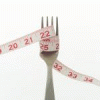Search the Community
Showing results for '"Weight gain"'.
Found 15,901 results
-
Getting old sucks! I have had a radiotherapy induced menopause at age 43 2 years ago and started HRT a bit over 12 months ago due to horrible symptoms of hot flashes, insomnia and anxiety and depression. In the last year, whilst I've recovered well from rectal cancer I feel my health has steadily declined in a non specific way. The worst thing I've noticed though is my rear end and thighs have balooned and I'm certain its the HRT. A recent CT scan also picked up that a fibroid (we think) in my uterus has grown very quickly over the past 12 months. I've also had horrible heartburn and stomach pain and have been depressed to be on regular Nexium. As well, I dont think the HRT has done all that much for my mood (or libido). I had a tummy tuck back in march and it seems like this normal menopausal weight gain now cant go on the tummy and I'm really really unhappy with my shape now, I'm very very pearshaped, even though I'm still slim. All I can say is thank god I was virtually skeletal after cancer treatment since the 20lb that has come out of nowhere has just brought me back to a BMI of 22 or so but its ALL in my rear end! I really need to shift 5kgs, I'm a fine boned build and 154lb is just too heavy for my 5ft 10. I've also noticed my athletic ability decline sharply. I cant run as far as I want to or could and dont recover. I've taken up strength training due to bone density issues and it wipes me out completely. I'm not used to being this weak! It really sucks. I've not taken my HRT for the past few days and wonder of wonders, I've not needed Nexium either. I wonder if I stop will the fibroid shrink (thus avoiding a hysterectomy) and will my ass do likewise? Or will I just become an axe weilding homicidal maniac again?
-


Is anyone else OBSESSING over getting this sleeve done? It's all I think about!
Pinkbetty replied to Pinkbetty's topic in PRE-Operation Weight Loss Surgery Q&A
Kristie-- I am soooo with you. I stumbled accross the lapband forum maybe 3 years back and didn't have the 7500 ( at the time for it)... Then of course, I thought, nah, Nutrisystem is the way to go. Never works though! I always fall back into weight gain, and gain MORE. So, I'm with you. Good for saving up for Aceves. It'd take me years to do that - haha (Im a single mom ) so I gotta go with Almanza. Anyways, hang in there. Ladies, we will all be hot soon! -
The Beginning of One Bandster’s Journey By Ivy Adamson’s Granddaughter The alarm sounded at 5:30 on the morning of January 13th, 2009. My husband leaned over to silence the buzzer, and then he turned and kissed my cheek. “Wake up, Honey. Today’s your big day.” No need to wake me up. I’d been lying wide awake since 4:00, and had only slept fitfully throughout the night in anticipation of this day. Sleep? Who can sleep on the night before surgery? And this wasn’t just any surgery. This was Lap Band surgery! This day, I would “cross over to the other side”—a term I had learned from lurking on weight loss forums. Sleep was the very last thing on my mind! Instead, a variety of surgery scenarios floated through my head: how much would it hurt? How long would the pain last? Would it be successful? These and other questions helped cause my lack of sleep, but dispersed in between the thoughts of how my surgery would play out were floods of memories. My mind forced me to relive snippets of the last fifteen years. Memories bounded back to me in random snapshots, with no respect for chronological sequence—just bits and pieces of events in my life that I could identify as times when I experienced the significant weight gains and losses that put me in a position today where I was facing bariatric surgery. I was married in the summer of 1993, and worked fulltime as a middle school English and reading teacher. I routinely beat myself up about being about 30 pounds overweight, but I was no where morbidly obese. By April of 1994, I was pregnant with our first child. This is when the first big weight piled on. I was sick with bad headaches every day of my pregnancy and developed pre-eclampsia. I gained 100 pounds by the time my son was born, and had a horrific birth, which resulted in an emergency cesarean to save both of our lives. Juggling the responsibilities of a fulltime work, and handling a tough pregnancy, and now a sickly child, who never slept through the night until way past his fourth birthday took its toll on me. However, with lots of determination and hard work, I took off 118 pounds within about 2 years. Our son was always ill, hardly ate, and was not meeting his developmental milestones. He was clingy and lived with permanent dark circles around his gaunt, sunken eyes. At 18 months, he had surgery to repair bilateral hernias. While in surgery, the anesthesiologist noticed that our son had a suspicious heart murmur. Subsequent visits to a pediatric cardiologist confirmed that he had a heart defect that would need to be repaired if he could ever gain enough weight to endure heart surgery. When he turned three and still could not speak intelligibly, we had him assessed by the school district and a pediatric neurologist. The word, “autism” was thrown around by the professionals, but we did not get a definitive diagnosis until he was at least five years old. The strain of caring for our child wore me down. I was permanently sleep-deprived, and constantly worried about his health. Additionally, I had decided to go back to school to work on a master’s degree, plus I continued to work fulltime. The weight began to creep back on. Looking back, I realize now that I was probably clinically depressed. No one ever suggested that I seek therapy, and I was too overwhelmed at the time to realize that I could probably use it. I was putting the needs of my child and my job first, leaving no time or energy to take care of me; hence, I continued to gain weight. I completed all of my course work for my master’s degree in the spring of 1999. I discovered I was pregnant with our second child in October of the same year; on December 15th, I turned in my thesis, thus completing all of my requirements to receive my diploma. And that same night, my husband, son, and I boarded a plane for two gloriously, tranquil weeks with my family in Barbados. I spent my time relaxing on the beach every day, and reading all four of Maya Angelou’s autobiographies. Each book was better than the last. Angelou impressed me with her indomitable strength and spirit to overcome all kinds of adversity. I thought I would like to have her strength; she was an example to me of the kind of woman I would want to be. Before long, I learned that I would have to summon some of Angelou’s strength to get me through the next challenge.
-


craving coffee...i'm gonna die!
Matt S replied to just1more's topic in POST-Operation Weight Loss Surgery Q&A
Caffeine can cause your blood sugars to be eratic, which can cause weight gain (the whole insulin resistance stuff!). My surgeon allows coffee whenever I want other than when on the clear liquids. I will be having surgery tommorow, wish me luck, I'm very nervous for some reason. -


Hi I am a new member and I am trying to get the lap band
Guest posted a topic in LAP-BAND Surgery Forums
Hi everyone, My name is Tina and i am new to the board. For the past month I have visited the board and love the type of community that is here. Since my decision to get the Lap Band I have felt very alone until now. The few people I have told have not been very supportive. I have decided not to tell anyone if I am approved and have the surgery. To tell you about myself, i am 5,9 and 320 lbs. My BMI is 49. I am in the process of getting approved for the Lap Band in New York with Dr. Christine Ren and Dr. Fielding. I have been referred by primary doctor and my insurance company Oxford said that the surgery is covered if medically necessary. My doctor says its medically necessary because i can barely move without pain due to fall during last year's winter. I am in the process of getting my medical records from childbirth until now, my gym memberships and all other documents. I have photos at various stages of weight gain and loss. Does any one have any suggestions on what other information i should gather? Is Oxford a pain to deal with. Dr. Ren said that her office usually handles getting the approvals and provides me with a copy for my records. I have to be honest with you, I am afraid of what will happen in the course of the next few months. Does anyone have words of wisdom of dealing with their Lap Band decision and surgery? Thanks for your help. Tina -


40 Hours Before Surgery And Starting To Get Cold Feet! Help!
susanfaye replied to TiredOfChubRub's topic in POST-Operation Weight Loss Surgery Q&A
I had my surgery August 6th. I wasn't nervous about the surgery because it was #6 for me. I was nervous about the changes, but I don't regret it for onesingle moment. The first few days have been a little rough, but nothing compared to dying an inch at a time. That is what the weight gain felt like to me. Slowly loosing energy and mobility, being a slave to food,feeling like people were constantly staring and judging. Now I feel like I am back in control of my life, living it for me and my familiy. That is what prompted my decision to be sleeved and that is the decision I will stand on. Good luck to you and may you have a blessed and speedy recovery! -
there are virtually no dumping with the sleeve and its extremly rare, no malabsorb with the sleeve, no puking, no limit of size food to a point that one eats, or great restriction. Yer band is in there just as long as somone who started at 400 pounds. If you had to have it remove, and didnt want weight gain again you would still have to do a revision surgery. You still have the same odds of typical LB problems popping up as any of the others with more weight to lose. JMO, but I think you have subjected yourself to the same issues you didnt want t have, down the road. JMO, no offense intended. Sandy
-
Bariatric Eating FaceBook group seems to have great ideas regarding the weight gain 2 years post surgery.
-


I am stuck and not sure why
mariamitani replied to ashleywi's topic in POST-Operation Weight Loss Surgery Q&A
Weight gain or stalls can be caused by not exercising enough or too much carbs. You are obviously exercising enough so maybe carbs? The POO thing does sounds possible too. Goodluck I hope you start loosing soon -


How long before the "honeymoon" is over?
Happy Camper replied to highfunctioningfatman's topic in Weight Loss Surgery Success Stories
Hi all, I am 5 years post op. I stopped paying attention after I got thin at about 10 months. So the "Honeymoon". Seems to fall off about then. ,your pyloric valve has relaxed and you are feeling good/looking good! You have to keep going, do not think it will keep falling off (losing your hair as well). Keep exercising, keep drinking your Water and ALWAYS eat your Protein first. I can eat a whole lot more now, I get hungry, made excuses and have gained 50 lbs back in about 3 years. I am back on this forum looking for inspiration to get back using my tool, and pray I can somehow regain more restriction. I never have gone back to drinking while I eat, I have never missed my Vitamins. I did end up having 2 grand mal seizures, not certain but I am on medication which was when my weight gain began. I don't want any more excuses - I want my weight loss back. If anyone would like to ask,any real life questions about the journey, feel free To ask just about anything :-) I am happy to share what I know. -


Sugar-free hard candy?
LiseSeattle replied to LiseSeattle's topic in POST-Operation Weight Loss Surgery Q&A
Awhhh - thank you! And you are way too sweet! It's hard to see myself as pretty at this weight but i look at pictures of myself when i was thin (not too long ago) and think wow - what a happy woman. I look at pictures of myself now and think "ewwww...who is that"? it's hard to see yourself go from one thing to another so fast. but a lot has gone on in the past 2 years - husband got very sick...new job...etc - no excuse, but things that contributed to the weight gain. i'll keep blogging as long as you keep writing comments that keep inspiring me! :crying: -


Gall bladder surgery went great... But now no restriction!
Jachut replied to Princess_Gottalose's topic in POST-Operation Weight Loss Surgery Q&A
I've been through it, I know how you feel. I had to ahve all my Fluid removed for a big surgery to remove my rectum and part of my colon and to form an ileostomy. Part of this was several colonoscopies and bowel preps, a fair bit of fasting pre procedures and a whole lot of fear and stress, then it took about seven days to get back onto solid foods following the surgery, followed by a couple of weeks of very very high stoma output, diarrhoea. As you can guess, i dropped a fair bit of weight during this time, and had also done so during the pre op chemo and radiation so all in all, I finished up at a BMI of 19, from my previously healthy 21 or so. I've been in contact with my lapband clinic regularly. From telling me when they emptied my band that I could begin refilling 3 weeks after surgery (and then unfill again for the second surgery to close the ileostomy some months down the track), my doctor has steadfastly refused to give me ANY fill at all because of my low weight. I get this, I havent truly asked for it, but most people will need fill to maintain their loss and I'm no exception. Anyhow, today I finally got some, six months later. I've worked so so SO hard over the past six months to not gain weight and all I've regained is just enough to bring my BMI up over 20, but with chemo finished, full recovery complete, my appetite is returning to normal and its been getting easier and easier to gain and I've had several weeks of "dieting" after small gains to get them off before they stick around. Today I had to absolutely do my block in the surgery because my doctor didnt want to give me any because she said "you're a healthy weight". Well, duh, it was that same doc who told me to expect a weight gain with the unfill, that virtually nobody could keep the weight off long term without it. I wasnt looking for tight restriction to lose, just enough to maintain my weight. After I kind of yelled a bit and said that I had this damn band and I wanted to use it, she gave me a 1cc fill, with another 1cc sheduled for 3 weeks time. So...... it IS possible to keep the weight off for quite a long period of time. I simply "dieted" the whole time. I finished eating when I knew I should, i stayed away from bad foods, I filled up on fruit and salads, I exercised, and overall tried to eat not much more than I did with restriction. I found I moved from a pattern of little and often eating to 3 square meals, but overall calories remained about the same. You can do it, its simply a matter of how much you want it, harsh as that sounds. But six months was stretching the limit of my abilities, I'm finally starting to crack and am very very glad to have had some fill. Good luck to you! -
Wow! I empathize with your frustration, but perhaps you should just wait until you calm down and think this through. Your reaction sounds a bit childish. You sound like Veruca in "Willy Wonka and The chocolate Factory". "I want it Daddy! I want it now!" Did you gain all your weight in a month? I doubt it. Sometimes it seems like weight gain came on really fast, but losing it takes even longer. It's not like the band goes in and wham - the weight falls off. Your body hasn't even had a chance to finish healing, so even though it may not feel like it, you probably still have some swelling. You also have to work with your body (and your mind) to kick it into weight loss mode. Whether you like it or not, the human body comes equipped with a strong survival instinct and will automatically kick into gear, slow it's metabolism if threatened with what it perceives to be starvation and/or injury. Your job is to give your metabolism a kick in the pants to get it going, eat healthy but fewer calories than you burn so you lose fat instead of muscle after you heal. You're not even far enough along to start a proper exercise regimen. Right now your body has been injured (surgery), or so it thinks and you've changed what it was used to consuming. Be patient, this takes work! I hope for your sake that your insurance and doctor do not give in and remove your band this early in the game. I don't think you have had it long enough to know whether or not this will work for you. Perhaps you need to find a support person or group and take a look around on this forum so you can see what it takes to make this work for you. You may be right that this is not for you, but since you've come this far, what have you got to lose (no pun intended) by sticking it out a little longer?
-


Blue Cross Blue Shield of Illinois PPO
madamelp replied to Ready2BDone's topic in PRE-Operation Weight Loss Surgery Q&A
What they told you about the BCBS PPO approach is true. You have to be on a six month medically supervised diet before the surgery. You might lose weight, not lose weight, gain weight...there is no requirement other than the surgeon's office being able to say that you were on "a six month medically supervised diet". Then BCBS of Illinois will pay for the surgery. I don't want to wait six months and having any of the surgeries (lap band, gastric sleeve plication or gastric bypass) are less than half the cost in the Mexican hospitals. Plus, the Mexican doctors have more experience with the procedures. They have all done more and have been doing them longer. That is why I decided to go to Mexico and to pay for the surgery myself. Clinic in Chicago wanted $13K for the lapband vs. 4995 in Hospital Angeles Tijuana. They don't even offer the gastric plication surgery here yet. So, I am off to Mexico for surgery at the end of the month. I should be 60 pounds thinner before BCBS would even let me do anything. -

Patient compliance: what's the big deal about it?
Jean McMillan posted a magazine article in Support
WHAT DOES PATIENT COMPLIANCE MEAN? The term “patient compliance” is a funny one for someone like me, who in some areas of her life doesn’t have the patience required for compliance. Maybe that’s just my funny little brain playing with words again. What does patient compliance mean? A compliant patient is one who follows or completes with their physician’s diagnostic, treatment, or preventive procedure(s). For example, John Doe’s blood work shows high LDL cholesterol and triglycerides (diagnosis: hyperlipidemia). He’s a compliant patient because he faithfully takes the medication his doctor prescribed, avoids eating saturated fats, and increases his exercise in order to lose some weight. His mother-in-law has high blood pressure (hypertension) and is recovering from a stroke, so in order to prevent the medical problems that challenge her mom, John’s wife Jane follows her doctor’s recommendation to reduce her own salt intake and join John for a daily walk. Their obese son Mark, who is scheduled to have bariatric surgery in two weeks, is compliant as he carefully follows his surgeon’s pre-op liver shrink diet to prepare for the surgery. Their sun-worshipping daughter Mary just had a suspicious mole removed and complies with her dermatologist’s recommendation to use sunscreen every day and give up the tanning bed. A highly commendable family, aren’t they? What about you? Are you a compliant patient? All the time, some of the time, or none of the time? Compliance is a practice that matters to me…does it matter to you? BARIATRIC PATIENT COMPLIANCE Most bariatric surgeons agree that the #1 cause of disappointing weight loss or other WLS “failure” is patient non-compliance with the surgeon’s protocol. In contrast, many adjustable gastric band patients (the disappointed ones, anyway) agree that the #1 cause of band “failure” (however they experience it) is that the band doesn’t work, no matter what (if any) protocol you follow. How can we reconcile such opposite views of WLS failure? What can surgeons do better or differently to improve patient outcomes? We already know what patient compliance means, so let’s take a look at the term “protocol.” In a general sense, protocol is a set of conventional principles and expectations that are considered binding on the members of a particular group, be it professional, social, or political. It’s also the formal etiquette and code of behavior, precedence, and procedure for state and diplomatic ceremonies. Protocol is a big deal to the British Royal Family, as witnessed by the flutter over the Queen’s order that Kate, the Dutchess of Cambridge must, as a former commoner, show reverence to the ‘blood princesses’. She is expected to curtsey to those born royal, such as Princesses Beatrice and Eugenie – both in public and in private. Although the media did a lot of speculating about Kate’s putative humiliation over this order, the importance of royal protocol can hardly be a surprise to a British citizen who marries into the Royal Family. In the medical world, the term protocol refers to the plan for a course of treatment – a physician’s diagnostic, treatment, or preventive procedure(s) like those followed by John Doe and his family. And like Kate Middleton, a bariatric patient can hardly be surprised over their surgeon’s insistence that they follow that protocol. Any surgeon worth his/her scalpel educates patients about that protocol from the time of an informational seminar to the day of a band patient’s first fill, with updates as time goes on. That’s why I feel impatient when I hear (very, very often) that new bandsters are shocked and vexed over the requirement that they follow a liquid diet immediately before and after their surgery, as well as after fills. “How can that possibly be a shock?” I ask myself. Did the patient sleep through their pre-op education, or were they so focused on the vision of themselves in a size 0 that they forgot the work that must be done to arrive at that size? Or (please say it ain’t so!) did the surgeon or other medical professionals in that bariatric program not spell out the details of their protocol when the patient was preparing for surgery? And then there’s the whole “Why does my surgeon say eat only ½ cup of food when my friend’s surgeon says eat 1 cup of food at a time?” dilemma. As I explained in Bandwagon, surgeons establish (and fine tune) patient protocols based on their own experience with their own patient population. If band manufacturers hired teams of auditors to ensure that every bariatric surgeon in North America used the exact same protocol, no one would be able to afford a gastric band, and very few surgeons would bother using the band for their patients. And a brand-new gastric band sitting in its package is completely useless until a trained and experienced surgeon implants it in a patient. Allergan and Ethicon Endo aren’t surgeons; they’re manufacturers of medical devices. So while speculating about the great variation in WLS protocols might be mildly entertaining, it’s not going to do a whole lot to get you closer to that size 0. If you choose a surgeon you trust and respect, you also choose to abide by their protocol, and enjoying that protocol is beside the point. I spent decades enjoying my own weight loss and weight gain “protocols” so much that by the time I was 54, I needed weight loss surgery. So whose protocol is healthier or more effective, mine or my surgeon’s? I lost 92 pounds by following a surgeon’s protocol. Is there a problem with that? I think not. OK, hang on a second while I climb off my soap-box. Ah, that’s better. Here I am again, standing on the ground, surrounded by living, breathing (if distant) WLS patients. It’s not fair to generalize about any of us, is it? But generalize I must in order to make a few more points. THE DOUBTING THOMAS I think some of us are by nature more likely to ignore, question, or defy authority figures, while others accept authority without voicing or even thinking a question. In the former case, we need to cultivate trust in the doctors who want to help us, while in the latter case, we need to cultivate enough trust in ourselves to dare to ask those authority figures for better or more detailed explanations of their instructions. I’m more on the defiant, or Doubting Thomas, end of the patient spectrum, but a few years ago I read a statement that struck me (out of the blue) as very true: SOME THINGS MUST BE BELIEVED TO BE SEEN I extrapolated that statement from a religious context into the context of my WLS journey (at that point in my life, I could extrapolate almost anything into the context of my WLS journey). When I had Lap-Band® surgery, I was convinced that I was a total failure at weight loss. Going into that operating room, I had to believe something I’d never seen myself do: that with the help of my band, I could succeed at weight loss and maintenance. And I did. Because truth can take a while to reveal itself, I think people like me need to ask ourselves, “What possible harm could befall me if I do follow an instruction whose proof of efficacy I can’t see right now?” Let’s go back to a previous example: your doctor tells you not to eat more than 1 cup of food at a time. You know you can easily eat 2 cups, so if you really want (or think you need) to eat all that, and no immediate negative consequences result from doing that, why shouldn’t you just go ahead and do it? Why should you blindly follow your doctor’s seemingly arbitrary and unreasonable instruction to stop eating after you’ve consumed 1 cup of food? It’s your doctor’s job to explain the “why” behind that instruction, but if she/he hasn’t done that to your satisfaction, and he/she isn’t sitting at the table with you and that plate of delicious food, I suggest that you consider what terrible thing would happen if you put away the extra cup of food for now. Will you starve to death? Really? What else might happen? Will you surrender your liberty, be forced to vote for your doctor’s favorite presidential candidate, or (worse) be compelled to clean his toilet every Saturday for the next 20 years? Oh, no. No, no, no. He’s your doctor, not your teenaged son, so let’s consider another, quite serious consequence of following his instruction. Maybe, just maybe, nothing bad will happen at all. Maybe even something good will happen. Just because your compliance doesn’t yield an instant reward doesn’t mean it won’t yield a future reward. What might that reward be? How about weight loss and the avoidance of side effects or complications? Doesn’t that sound good to you? Sure sounds good to me. I do much better at following instructions if I understand them, but I’m here to tell you that in almost 5 years of banded living, I didn’t truly begin understand my surgeon’s and dietitian’s protocol until I’d been following it for 6 or so months, and the scope of my comprehension expanded more over the next few years. In the meantime, I lost those 92 pounds I mentioned earlier. The lesson there is that you don’t have to completely understand or believe in a protocol for it to work, as long as you follow it as best you can. THE BELIEVER Now I want to talk to the folks at the other end of the patient spectrum, the obedient ones who wouldn’t even think of defying the advice of an authority figure. Their WLS journey can be bumpy too, even when they slavishly follow their doctor’s protocol, and here’s why. One of the problems with blindly following instructions that you don’t understand is that sooner or later you’re going to find yourself in a situation no one thought to warn you about. You won’t instantly know what to do, and you may waste precious time on unnecessary blood, sweat and tears. You may even end up doing something harmful. Without at least an inkling of the principles behind your doctor’s protocol, you’ll have a hard time coming up with a stopgap measure to help you survive a surprising and stressful situation. If you worry that any decision you make on your own will be the wrong one, ask yourself: “What’s the worst that could happen if I do nothing right now? What will happen if I do the ‘wrong’ thing?” Will you die? Surely not. If you’re able to breathe, ambulate, drink water, state your name and what year it is, and blood isn’t pooling in your shoes, you’re going to survive at least long enough to call your surgeon, leave a message, and wait for a call back. So unless the decision requires someone to dial 911 to speed you to the emergency room (if you can’t breathe, move, swallow, talk, remember your name or the year, stop the bleeding, or if something else life-threatening is happening), take a deep breath! And another one, and another one. Ah, that’s better! People on the Believer end of the patient spectrum are often reluctant to ask questions of their doctors because they’re afraid they’ll look stupid or make the doctor angry. I can only repeat the old saying that the only stupid question is the one you think but don’t ask. It’s extremely unlikely that your doctor is going to spank you if you ask (again), “Why can’t I take ibuprofen for my headache?” If your doctor seems irritated by a question like that, it may be because you’re trying their patience, or it could be because they’re having a bad day (worried or annoyed about something completely unrelated to you or their job, wishing they hadn’t eaten the whole pastrami sandwich for lunch, didn’t sleep well last night, etc.). It could also be because their bedside manner needs work. If that’s the case, you can set out in search of another surgeon, put up with the original surgeon’s rudeness, or do your part to lead that doctor towards kindness. If the answer to your question starts looking like a time-consuming project that your doctor doesn’t have time for right now, it’s perfectly okay to say something like, “Is there someone else in the office who could work with me on that?” or “Would it be better to make another appointment to talk about this?” THE DOCTOR Doctors, like other people, come in all shapes, sizes, and temperaments, and with varying communication skills. They’re not all made from the eternally patient, smiling, avuncular Marcus Welby mold, and not all of them are motivated solely by the desire to help other people. They’re often just as fascinated by science as by altruism. Like you and me, they work to earn money, and if their pay seems ridiculously high, just ask one of them how much money they borrowed to get through medical school, and how much they pay each year just for medical malpractice insurance. In many ways, I’m a “you get what you pay for” kinda gal. If 3 doctors quoted band surgery at a total of $13,000 to $15,000, and a 4th doctor quoted only $4,000, I’m not sure I’d feel safe with a bargain basement surgeon (nor would I assume that the $15,000 surgeon was the best). Last I heard, no courses in Bedside Manner or patient communication are required of, or even offered to medical students. Doctors must exchange important information with patients whose own communication skills vary greatly, and they must take a patient’s measure, choose a treatment plan, and explain it to the patient using a minimum of enigmatic medical terms, all within a matter of minutes before they rush off to the next patient or task. Doctors must rely on support staff to do hundreds of things to keep the doctor’s boat afloat, and it’s entirely possible that they have no idea how rude or careless or wonderful some of those people are because so much of that goes on in a way that’s invisible to the doctor. And which would you rather your surgeon focus on: the ink cartridge for the Xerox machine, or the pain in your abdomen? In medical folklore, surgeons are infamous for possessing a God complex, with big egos, enormous self-confidence, and an excess of superiority. When you think about it, it does take a lot of chutzpah to cut into another human’s flesh and fiddle with their innards in the effort to fix a problem., so it doesn’t surprise or bother me much that some surgeons have a hard time coming down to the lowly level (perceived or real) where their patients trudge through the mud of ordinary human existence. In many types of surgery, that’s not a big problem because the surgeon sees the patient maybe 3 or 4 times: the initial consult, the surgery, and 1 or 2 post-op follow-ups. Then the patient goes on their merry (we hope) way and the surgeon scrubs up and dashes into the operating room to cut into someone else’s medical problem. General surgery is usually a fix-it-and-go thing. If your diseased gall bladder gets tossed away and forgotten, do you really care if that also means your abdominal pain is also a thing of the past? But bariatric surgery, which treats a chronic and incurable disease that’s a highly complex tangle of physical, behavioral, and emotional problems, is a different matter. Successful bariatric surgery is not a fix-it-and-go proposition (and that’s reason #99 that I would hesitate to ever have surgery outside the United States, knowing that I have no local surgical back-up or support). Bariatric patients need far more education, aftercare and support than most other types of patients. I’m convinced that one of the causes of WLS failure (however you define failure) is inadequate patient education, aftercare and support. And on top of that, adjustable gastric band patients need even more education, aftercare, and support than most other bariatric patients. While I believe that too many general surgeons have been jumping on the gastric band-wagon without fully understanding the needs of those patients, it’s not fair to say that they’re all being careless or negligent when they fail to give patients what they really need. Unless they’ve had bariatric surgery themselves, they just don’t know what it is to walk in our shoes. They might consider the implanting of a gastric band to be an interesting and possibly lucrative addition to their practice without realizing that surgical expertise is only part of what the band patient needs. Doctors and other people with very high self-esteem can be hard for us ordinary mortals to deal with, but it’s a mistake to assume that they’re looking down on us. They may not be looking at or thinking about us at all, not because they don’t care about us but because their minds are so enthralled by and preoccupied with medical science. My father was a brilliant scientist whose head was so far up in the clouds that I often wondered what planet he was on. At the same time, I know he loved me when he noticed me (and I know now that nothing I could do would change that). In a sense, doctors who get heavily involved with their patients are doing those patients a disservice. The Hippocratic Oath exhorts doctors to “do no harm,” not to mop up your tears or hug you when things go wrong. If that seems harsh, consider this: doctors actually need to keep some emotional distance from their patients in order to treat them well medically. Without that distance, it would be very hard for them to make rational decisions about patient care. That’s why it’s considered poor practice for doctors to treat themselves or their loved ones. I’m not saying that it’s okay for doctors to be cold and heartless and should be excused for bad behavior. None of them are perfect (and neither are we, the patients) and you won’t find me worshipping at the altar of the AMA or the ASMBS. I’ve encountered some wonderful doctors and surgeons in my lifetime, and some bad ones too. The average American bandster might see 3-4 doctors on a regular basis (a few times a year): a primary care physician, a gynecologist (if you’re of that persuasion), a dentist, and maybe a chiropractor or a specialist like an eye doctor. The average American bariatric surgeon probably sees 20-30 patients a day (perhaps a few thousand per year). Since I’m not a mind-reader, and no one cares as much about my weight loss journey as much as I do, I figure it’s my responsibility to refresh my doctors’ memories each time I see them. I might wish that I didn’t have to repeat over and over again that (for example) I’m hearing impaired and need my doctor to look at me when he speaks, but that’s a minor issue compared to some of the bigger ones I face as a mature adult. -


Brigham and Women/Faulker Hospital
notateechanow replied to nomadem's topic in LAP-BAND Surgery Forums
OH, Tiny...my issue was that I gained that much in like 3 weeks!! I've been at 3.5 and 4 CC since my hospital visit in early Sept. I just started working out again about 3 weeks ago. Yep--totally coincided with my weight gain. I'm not a believer in that whole "muscle weighs more than fat" thing. I know I was hungrier when I started working out. I ate more. I ate healthy, but tended to eat more fibrous foods and not enough protein. Funny enough---I saw him today. I was in by 4:19 for my 4:30 appointment. I never even had a chance to fill out the paper that we do before each appointment. I was out before 4:30. He didn't even mention my weight gain! He simply told me it was "a good time for a fill". Oh, and to think I agonized about it!!! So he put me up to 5.0 cc's. Hoping the restriction will help with the hunger!!! Staying away from Halloween treats and candy hasn't been easy..... -
Hi Jay... my surgery scheduled for May 6 with Dr. R. will probably be pushed back, since I had an asthma flare, was put on steroids Thursday, and I got sicker Friday night and was sent by Urgent Care by ambulance to hospital to be admitted... fortunately the situation turned around and they let me go home early in the morning, then called me back in for a CT scan with contrast... which turned out NORMAL... but they want me to see a pulmonologist. So with my pre-op eval. scheduled for Tuesday at the Weiner Center, and visit with Dr. R. afterwards - I am quite sure everything is going to be pushed until a Pulmonologist will sign off on the Surgery, not to mention the weight gain from steroid caused fluid retention... and probably cannot stay strict pre-op when so sick... I am not going to let this get me down though... I just ordered a feather bed for the post-op need for fluffy-luv, and a bunch of low-glycemic vegetarian and vegan cookbooks from Amazon for my post-op reading, to prepare for post-mushy phases and a new lifestyle. :laugh: :thumbup: :thumbup:
-


How often do you weigh yourself?
lizonaplane replied to ruthpets's topic in POST-Operation Weight Loss Surgery Q&A
This is me. I have checked after falling back asleep too. But the fluctuations don't bother me as long as I am in a downward trend, so I weigh myself every day if I'm home or at my parents' house where I know the scale more or less matches mine. I would say that if you find yourself getting panicked and wanting to do something extreme because of a 0.5 lb weight gain on any given day, probably you shouldn't weigh every day. I expect my weight might go up 1-2 days in a row but still be down for a the week. I just don't want to go a whole week without being accountable. YMMV. -
Yesterday, Mon, Nov. 4 Maintenance : 5'2" / 1yr PO Sleeve / 114.4 lbs ...am such a rebel. I put my vinaigrette back on my salads out of cranky defiance of all things that suck. Day 5 smoke-free and counting...and I KNOW that it is not related at all, AND that there are a gazillion reasons for this, BUT my inner crank is annoyingly pointing out that since I quit smoking again, my weight has steadily increased by fractions of lbs daily (a whole 1.5 lbs since, the HORROR). So its all like "See?!?!?! you need to go buy a pack and stop this explosive weight gain ASAP!!". Shut the eFF up, Crank. 10:30am - coffee with Stevia 12:00pm - salad greens + vinaigrette (❤️) + carrots + 1/2 avocado + 1oz salted Herring 4:00pm - salad greens + vinaigrette (❤️) + cucumber + 1oz salted Herring + 1.5 oz turkey jerky + 1 fl oz pumpkin seeds 6:00pm - 2 tbsp crunchy almond butter 7:00pm - salad greens + vinaigrette (❤️) + 1 tbsp corn kernels + 2 tbsp green peas + 1oz Parmesan cheese + 1/2 avocado + 1/2 slice bacon + 1 can smoked oysters w/ seafood sauce + 1 oz grilled octopus 9:00pm - 1 fl oz almonds + 2 squares dark chocolate + 1/4 cup blueberries Totals: 1480 cals - 86g Protein - 58g NET carbs - 95g fat
-
No doubt! I seriously don't remember when I was a size 8 or smaller. I was a 12-14 in high school the the college 15 turned into the partying all the time 30 and then marriage and pregnancy made it impossible to keep up. Starting pre-menopause REALLY does not help matters and then there is the medication which causes weight gain...and don't get me started on gravity!!!! Lol
-
The first couple of weeks after surgery, I was obsessive about getting on the scale. Why not, it was GREAT to see the numbers go down EVERY DAY! Then around my 16th day, the scale went UP! I got so obsessive about the weighing - I did it about 4 times a day. My Dad told me that he was going to take the scale away - because I was making myself crazy. I was concentrating on weight loss and not on the healing process. Then the hunger came, and I started to eat - sensibly, and of course my restriction is not what it was the first 15 days either. So now, I have not weighed myself in nearly two weeks. I'm afraid to - b/c I don't want to see any weight gain. Is this a smart thing to do at this point? I don't feel like I've lost, though the clothes are fitting much better. Should I get the scale back and weigh in once a week, or wait until after my first fill - Around March 15? Because it's not until after I start getting fills that I can have restriction, eat less - and of course expect some weight loss. Opinions??
-
DonnaGT & Bjean I Like Both Of You Started Getting Very Frustrated. I Got My Band On 9/05/06 And Have Lost 31lbs. I Lost Most Of It In The Week Before On Full Liquid Diet And The Week After On Full Liquid. During The Month Of Noveber I Actually Gained Some Back. I Had My First Fill And It Did Nothing. I Then Went Back In 3 Weeks For Another And Can Finally Tell A Difference. I Got Very Discouraged With Weight Gain. I Do Feel Hope Again But Am Worried That I Already Have 2cc's In My 4cc Band And Have 50lbs More To Lose. All We Can Do Is Just Take One Day At A Time And Hope For The Best. Good Luck To Both Of You!
-
I am there with you too. I got my first fill yesterday and he said I would probably want another one in a month. It is a process. I was on clear liquids for 24 hours and then could finally have a meal at lunchtime. I had a small chili from Wendy's, and now, 2-1/2 hours later, I am still not hungry, so I guess it's doing what it is supposed to be doing, for now. =) I was really struggling week three and several people and my nutritionist told me to try drinking a cup of milk while preparing a meal, so that I wouldn't be starving when it was time to eat...it worked. I actually attribute that to stopping the weight gain I was starting. Try it! I love organic milk...it doesn't upset my tummy!:smile2:
-


What the heck?!?! Why do people say the things that they do?
reginemichel replied to gingerjane's topic in PRE-Operation Weight Loss Surgery Q&A
Some people will never, I mean never ever know what it feels like to go through a weight gain/ loss cycle. To them, you never did enough effort. To them, you are a person who is lazy, eat to much and doesn't have any self control. So don't be angry about her commit because she has no clue. No one know you more than yourself so keep doing what's good for you. Don't keep telling people about what you think is good for yourself. I'm 30 years old now and I've wanted the band since I was 25. My ex-boyfriend made me feel bad about wanting to have the surgery. He felt just like that girl at your job. He has the body type that never needs to workout and always stay fit. So for year I was killing myself at the gym and feeling bad for myself because I just never could keep the weight off. I finally find out that I have a hormonal problem (PCOS) which affects my weight and having children. So guess what? Five years later with one less issue in my life (X- boyfriend) and a lot to look forward to. I'm having my band surgery on 3/26/10 and I can't wait. So do whats right for you. Good Luck. -
There are a few endocrinological diseases that cause, among other things, weight gain. They screen for these so that they can determine if there's an underlying condition that must be treated first. Another way of performing this screening is a 24-hour urinalysis. I also agree with her suggestion not to watch TV so late, for the same reason.













